#s. h. sime
Explore tagged Tumblr posts
Text
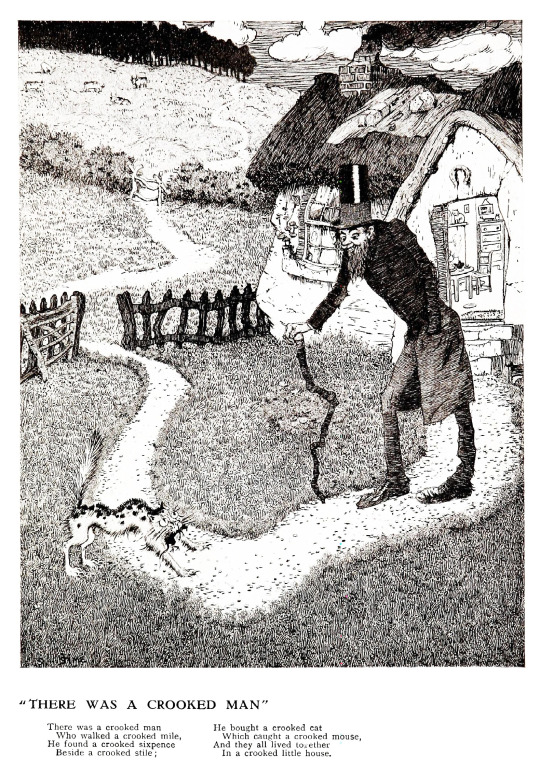
Sidney Herbert Sime (1865-1941), 'There Was A Crooked Man', ''Princess Marie-Jose's Children's Book'', 1916 Source
#Sidney Herbert Sime#S. H. Sime#english artists#vintage illustration#vintage art#black and white illustration#black & white art
59 notes
·
View notes
Text

短篇集 妖精族のむすめ ロード・ダンセイニ、荒俣宏・編訳 ちくま文庫 カバー装画=S. H. Sime(「The Sword of Welleran」)
#THE KITH OF THE ELF-FOLK#短篇集 妖精族のむすめ#妖精族のむすめ#lord dunsany#ロード・ダンセイニ#hiroshi aramata#荒俣宏#ちくま文庫#S. H. Sime#S・H・シーム#anamon#古本屋あなもん#あなもん#book cover
10 notes
·
View notes
Text

Lord Dunsany's 'The Blessing of Pan' illustrated by S. H. Sime, 1926.
395 notes
·
View notes
Text
List of my fav FGO artist:
Ryota-h
Yamanaka Kotetsu
Azusa
Taiki
Semi S
Pako
Sime
Kuroboshi Kouhaku
Nakahara
Nekotawawa
Ginka
Wada Arco
Miwa Shirou
Actually I also love the artist of Diarmuid & Fionn, Tesla, Ivan, Edison, and Yu Miaoyi but I forget their name. Will edit this someday.
#fate grand order#azusa#ryota h#taiki#semi s#sime#kuroboshi kouhaku#yamanaka kotetsu#nakahara#nekotawawa#ginka#pako#wada arco#artist#edited
7 notes
·
View notes
Photo

A coloring of Don Rodriguez, by Sidney Sime, from Lord Dunsany’s Don Rodriguez; Chronicles of Shadow Valley (1922).
#Don Rodriguez#Lord Dunsany#Sidney Sime#Aladdin Collar#golden age of spain#art nouveau#vintage illustration#1920's#gallant#spaniard#hero#fantasy#weird lit#enchantment#wonder#shadow valley#sidney h sime#american eldritch
59 notes
·
View notes
Text





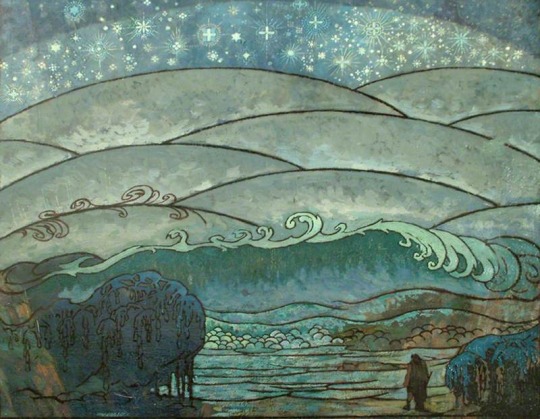


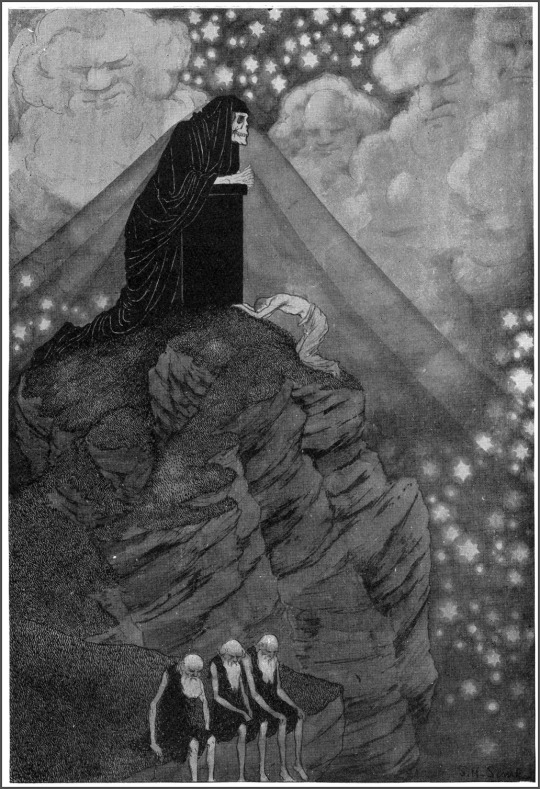

Sidney Herbert Sime (1865 – 22 May 1941, often S. H. Sime) was an English artist in the late Victorian and succeeding periods, mostly remembered for his fantastic and satirical artwork, especially his story illustrations for Irish author Lord Dunsany.
585 notes
·
View notes
Photo
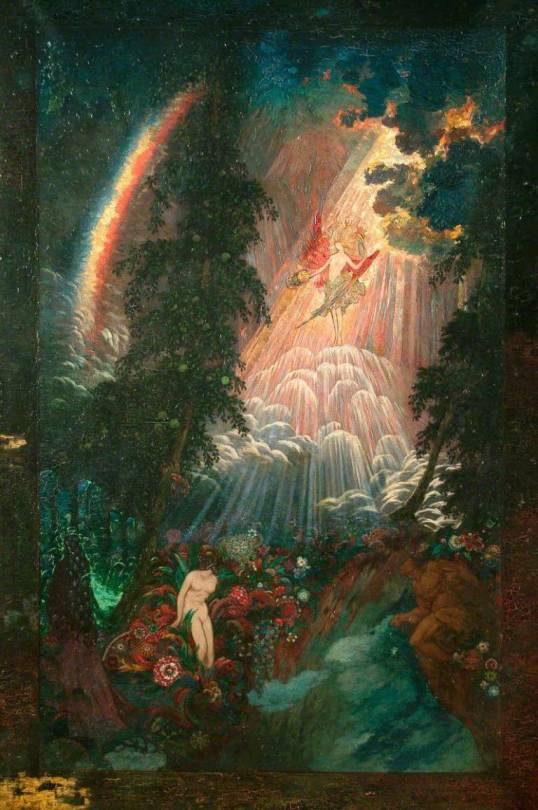
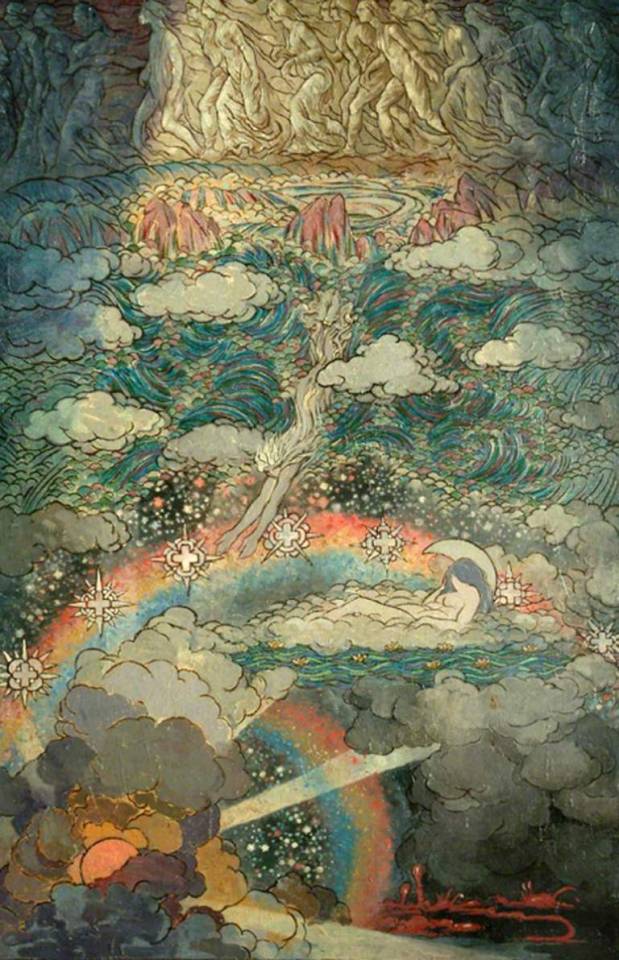
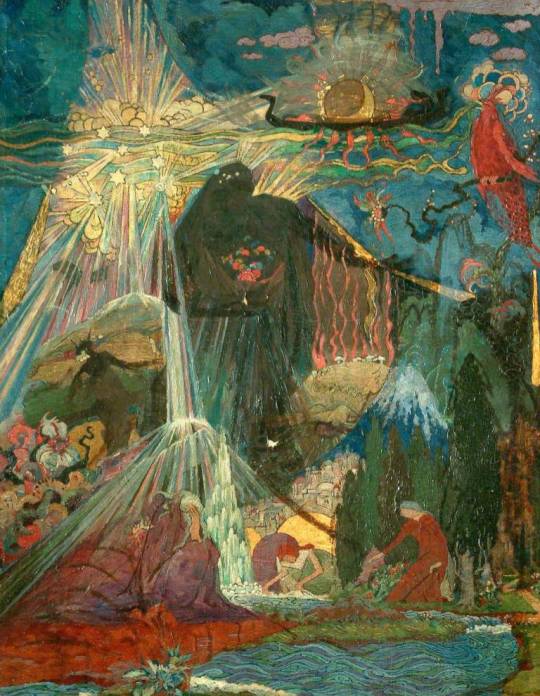


Sime, Sidney Herbert, 1865–1941
Sidney Herbert Sime (1865 – 22 May 1941, often S. H. Sime) was an English artist in the late Victorian and succeeding periods, mostly remembered for his fantastic and satirical artwork, especially his story illustrations for Irish author Lord Dunsany. (wiki)
6 notes
·
View notes
Photo


1) The Wily Grasser Illustration by Sidney Sime 1923 2) The Wily Grasser as imagined by S. H. Sime, in The Sketch
#Sidney Sime#art#artist#illustration#The Wily Grasser#The Wily Grasser as imagined by S. H. Sime in The Sketch
1 note
·
View note
Text
Unliked #2
RK900's name and character by: @ask-prototype-twins
=========================================
Hank woke up at 7 am, it was rarely thing. When he open his eyes he saw two figures next to him. It was Richard who was curled into Connor, the two was still sleeping. Hank quietly get out of the room and go to bathroom to chenge. Later he go to kitchen and make breakfast for himself. He was thinking what to do next. Connor's trauma was dengerous. He still couldn't forgot one day when he come back home after work and met Connor on the kitchen floor in pool of blue blood. He shaked his head, must to think about what is happening now.
When the breakfast was ready he sat on the chair and began to eat. It was nearly 8 am when he clean the dishes and go look at Connor and Richard.
When he enter the room he saw Connor sitting on the eage of the bed. ,,You're awake."he said. The android flinched at a sound of Hank's voice, but nodded. Richard was still asleep. ,,You don't need to be sceared. You're home."Hank came closer and reached out his hand to Connor. Connor looked at him.
,,I was killing them... I was killing my kind..."Connor said with fear in his eyes. ,,It is all my fault... Because of me Jerycho was destroied..."
,,It wasn't you. It isn't your fault."Hank came closer. ,,Let's go to the living room. Richard is still asleep. I don't wanna wake him up." Connor nodded and stand up to follow Hank.
Then the two walk into living room Sumo greet them with happy bork. TV was muted and it was still little dark outside. Connor sat on the couch and Hank was sitting next to him.
Hank didn't know what to say first. Connor has red LED and he was looking at nothing. If he still will be like that he would hurt himself or even kill. Hank was really worried, well, Richard and all Jerycho leaders too. Everyday it was getting worse, Connor had attacks more and more often. It was getting more dangerous even for Hank, Richard and Sumo if Connor will take a knife and try to kill himself, he would hurt Richard, Hank and Sumo too.
,,Connor, why are you blameing yourself that much?"Hank asked. He was sceared of response.
,,Because it was all me. I located Jerycho and show FBI the way to them."Connor wasn't looking at Hank, he was afraid. Afraid that Hank would order him to get out of house and never come back. Afraid of it that Hank would send him to destroy center. Afraid of...
Afraid of Hank. Nobody sceared him more then Hank or maybe he was sceared of Hank's reaction... What if-
,,Kid... Don't think like that. It wasn't you. It was a machine, not you." Hank's gaze was warm. Why wasn't he mad at him? He killed so many people. He even nearly killed Markus. Why everyone was so kind to him?!
,,I don't deserve to live... I killed so many people Hank! I took their life so why I deserve to live?!" Connor was crying. Every piece of him wanted to shut down or destroy himself. He wanted to die. He doesn't deserve people to be kind to him.
Hank didn't want Connor to feel like that. He wanted kid to be happy and have good life. He put his hand on Connor's back, android tried to escape from the touch but Hank didn't allow him to do it. ,,Everything is fine Connor. You are safe." Hank ruffled Connor's hairs. ,,Everybody are doing mistakes. But they are here to make us strong to later repair them." Hank wasn't good at talking about feelings, but he wanna do everything to make Connor feel better. Android put his head on Hank's shoulder.
They were sitting in silence for some time, but it changed then Sumo jumped on them. ,,Sumo! Get off of us!"Hank shout when the dog began to lick his face. Connor was lauthing, his LED was blue for the first time from long time. Finally Hank get Sumo down and now Connor was patting Sumo's head.
Hank was looking at him. Finally Connor was laughing. Finally some positive emotion show up. Then the phone rang. Hank didn't want to leave Connor, he finally can see kid smiling but when he see who was ranging he pick up the phone fastly. ,,Anderson talking."he said.
,,Lieutanant?" It was Markus, maybe was worried. ,,How is he?" Markus add.
,,Better then yesterday. Finally laughing." Hank said walking into bathroom, he didn't want Connor to hear.
,,Laugh? It is better then I tought." Markus said suprised. He surely has been worried. Hank just ride home with Connor.
,,Yeah. A little." Hank said looking aruond. God, he should clean there, but later now only Connor was important.
,,What about getting out somewhere? Maybe zoo or restaurant on dinner?" Hank was thinking about it a long time ago, but he couldn't go anywhere with Connor it this state. Kid was thinking that androids hate him or worse.
,,Sorry but not now. Connor need to rest and he shouldn't see any other android then Richard for now." Hank said. It will not do good on Connor, but maybe later. When Connor's state will be better.
,,I understand, but if you change your decision just call me. For now I must to do some more stuff at Jerycho." Markus said.
,,Sure. See ya." Hank said and hung up. When he walked back to living room he saw Connor lying on the couch and Sumo on him. This view make him smile. Kid was slowly getting better. ,,Are you alright?" Hank asked.
,,Yeah." Connor answer faster then Hank had thought. His LED was blue, that was a good sing.
Hank walked to kitchen for Sumo's food. How could he forgot to fed him? When he filled the bowl Hank would have sworn that Sumo was the fastest dog. Connor just looked up at Sumo then at Hank. The man smiled and android get his head back down. Did Hank do something wrong?
He looked at Connor, android's face was wet. Sumo must to licked him. ,,Maybe you should take a shower or bath?" Hank asked. ,,Maybe it would help you." He added and didn't get his eyes off of Connor. Android wasn't moveing for a moment but after some time he nodded and bagan to sit up.
Hank walked closer to Connor and offered a hand, android unsurely take it and stand up. ,,Go get a shower. I'll get you a clothes." Hank said and start walk to Connor's room. While Connor went to bathroom.
Android closed the door behind himself and started to put off his clothes. When he done he walked into shower and turn on warm water. It was cool feeling. He liked it. He heard that Hank knocked to door. ,,I'll put your clothes on the floor so you just need to open the door and get them." And then Connor heard that Hank walked away.
He stayed some more time under the shower and walked for clothes then closed the door again. Hank get him a green T-shirt and jeans. There were also a blue socks in stripes.
When he done dress up he looked in the mirror, his hairs was a mess, he looked down at his face. He couldn't look at it. It was all his fault that FBI find Jerycho. He was killing his kind. How he could?! He had to punish himself. He looked around and checked a drawer. Razor blade. He take it into his hand. He needed to punish himself for that. He won't hurt anybody else. Never!
He started to cut his right arm. He groaned. Thirium was spilling from his hand. It started to make a pool on floor. He heard a knock. ,,Connor, are you okay there?" Hank. He must heard him, but he couldn't stop. He must to punish himself. Connor didn't stop. He started to cut his left arm, he groaned again. ,,Connor open the door." Connor heard Hank knocking again, but he mist to punish himself. ,,Connor open the damn door!" Hank was angry? Did Connor do something wrong? He only punished himself. That's all. ,,CONNOR OPEN UP!" Hank shouted. Connor heard a sound of opening door. It wasn't bathroom door. Thirium was everywhere. Connor started to feel weak and world began to spin around him.
,,Connor? Can you open the door." He heard Richard. ,,Connor please." Did he begged? Or he asked? It was hard to say. Connor tried to get up and open the door, but his arm hurt and he was too weak. He felt like he was starting to lose senses.
,,R-Richard... H-Hank..." he whispered. He couldn't stay awake. He lose too much thirium.
,,Connor? Connor! Stay with us!" Hank was shouting and Richard began to break the door. Connor was fighting to stay awake. He couldn't...
======================================
Hank was worried, Connor he didn't answer any of his questions. Richard was breaking the door.
Sumo whined. Why he accept Connor to close the door. Finally Richard broke the door. The view nearly made Hank puke. Thirium was everywhere, Connor was sitting against a bath and he was in pool of blie blood. Hank felt weak. ,,Connor!" He rushed to android's side. He shake his sholder, but he didn't responde. ,,Shit. Connor! Wake up!" Hank was shaking him stronger. Richard wasn't here. Where he was? Hank was trying to wake Connor. After a minute he felt some touch, he saw Richard trying to stop the bleeding with a towel.
,,I call Markus and Jerycho. They will be here with sime time. Now we need to stop the bleeding and get him out of bathroom." Richard said calmly, but his LED was red.
,,Get him where?" Hank choked out the question. He was panicking. He couldn't lose next son.
,,Outside. Markus and Jerycho will be there in a minute." Richard have timer on. He knew where Jerycho squad was. He pick up Connor. The android was limp, he wasn't concious. When Richard was out with Connor and Hank, Markus was waiting in truck.
,,Get him in. We need to go." Richard and Hank get in and Connor was lying on their legs. ,,We'll save him." Markus said and started ride to Jerycho.
#connor#connor rk800#dbh connor#detroid become human#detroit#detroit: bh#dbh hank#fanfic#hank anderson#hope u like it#hope u like this!!#detroit connor#<3#<333#<3333#dbh#dbh richard#dbh rk900#unliked#part 2
1 note
·
View note
Photo
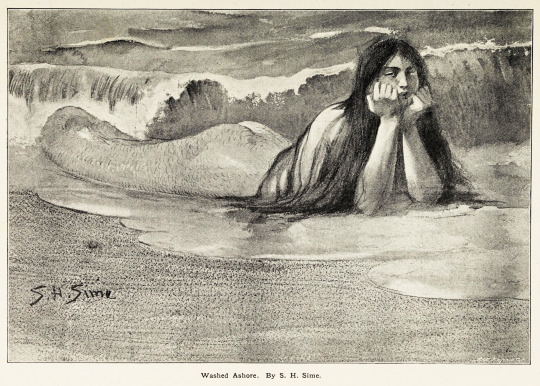
Sidney Herbert Sime (1865-1941), ''The Idler'', #6, Jan. 1898 Source
342 notes
·
View notes
Photo

THE BOOK OF Judges - From The Douay-Rheims Bible - Latin Vulgate
Chapter 1
INTRODUCTION
This Book is called Judges, because it contains the history of what passed under the government of the judges, who ruled Israel before they had kings. The writer of it, according to the more general opinion, was the prophet Samuel. Ch. --- Some are of opinion, that the judges might have each left records of their respective administration, (M.) which might be put in order by Samuel. The author of this book seems to have lived under the reign of Saul, before David had expelled the Jebusites. C. xviii. 31. D. --- The captivity, which is mentioned v. 30, must be understood of that when the ark of God, as well as the idol Micha, and may of the people were taken by the Philistines. Huet. --- Many passages of the Psalms, &c. are taken from this book, which shew its antiquity. Ps. lxvii. 8. 2 K. xi. 21. The divine Providence is here displayed in a very striking manner. D. --- The theocracy still subsisted and God generally chose these judges to be his ministers, and to deliver the people, on their repentance, from some dreadful calamity. H. --- They exercised a supreme power, yet without bearing the insignia of regal authority, or imposing taxes, or making any alteration in the established laws. The Suffetes, who were Carthaginian magistrates, seem to have taken their name from these Ssuptim. D. --- When God did not raise up judges, in an extraordinary manner, a kind of ananchy prevailed. H. --- Each of the tribes regarded only their own affairs, and the republic was dissolved. Grotius. --- Prosperous and unfortunate days succeeded each other, in proportion as the people gave themselves up to repentance or to dissolution. Sicut se habebant peccata populi & misericordia Dei, alternaverunt prospera & adversa bellorum. S. Aug. C. D. xviii. 23. S. Jerom (ep. ad Eust. & ad Paulin.) exhorts us to penetrate the spiritual sense of the historical books, and he regards "the judges as so many figures" of the apostles, who established the church of Christ. Though some of them had been noted for their misconduct, they were reclaimed by the grace of God. Then all the judges, every one by name, whose heart was not corrupted, who turned not away from the Lord, that their memory might be blessed, &c. Eccli. xlvi. 13. 14. W. --- S. Paul mentions four of them, though the conduct of Jephte and of Samson might have been regarded as more exceptionable than that of Othoniel, who is said to have been filled with the spirit of the Lord. C. iii. 10. Serarius doubts not but they are all in heaven. Salien (A. 2640,) supposes that the transactions recorded in the five last chapters, took place before this 40th year from the death of Josue, which was the last of Othoniel. With respect to the chronology of these times, there are many opinions. Houbigant endeavours to shew that the system of Usher is inadmissible, as well as that of Petau. Marsham maintains that many of the captivities, and of the Judges, related only to some tribes, so that the different years which are specified, must be referred to the same period of time. Thus while Jephte ruled over those on the east side of the Jordan, and fought against the Ammonites, other judges endeavoured to repel the armies of the Philistines on the west. See 3 K. vi. 1. Judg. xi. 16. By this expedient, he finds no difficulty in shewing that 480 years elapsed from the departure out of Egypt till the building of the temple, and that the Israelites had occupied the country of the Ammonites during the space of 300 years. H. --- Houbigant seems to adopt this system in some respects, and he thinks that errors have crept into some of the numbers, so that Aod procured a peace of only 20 instead of 80 years, &c. He observes that the name of judge here designates, 1. A warrior, like Samson; 2. a person who passes sentence according to the law, which was the office of Heli; 3. one divinely commissioned to exercise the sovereign authority, as Samuel did, even after Saul had been elected king. Proleg. Chronol. Others have compared the power of these judges with that of the Roman Dictators, or the Archontes of Athens. Serarius. --- They were properly God's lieutenants. Their revenue seems to have been very precarious, and their exterior deportment modest and unassuming. They were guided by the declarations of the high priests, when arrayed with the Urim and Thummim; and their business was to promote the observance of the true religion, and to defend the people of God. This book concludes with the history of Samson, describing the transactions of 317 years, (C.) according to the calculation of Usher, which has met with the approbation of many of the learned, and is therefore chiefly inserted in this edition, as it was in that which was published in 1791, at Dublin, by the care of the Rev. B. Mac Mahon, who seems to have made some alterations. It is not indeed free from many serious difficulties. But we have not leisure to examine them at present. See C. iii. 11. 30. We shall only subjoin the chronological table of Houbigant, which is not very common, that the reader may perceive where they are chiefly at variance. Moses governed 40 years, Josue 20, the Ancients 20, king of Mesopotamia 8, Othoniel 40, Moabites 18, Aod 20, Samgar 0, the Chanaanites 20, Debora and Barac 40, Madianites 7, Gedeon 40, Abimelech 3, Thola 23, Ammonites 0, Jair 22, Jephte 6, Abesan 7, Ahialon 10, Abdon 8, Philistines 0, Samson 20, and with Heli 20, Heli and Samuel 25, Samuel and Saul 20, David 40, Solomon 3. In the 4th year of his reign the temple was begun, 480 years after the liberation from Egypt. Those to whom no years are assigned, lived at the same time with others whose years enter into the calculation. Thus Samgar gained a victory over the Philistines, while the Chanaanites held the Israelites in subjection. C. iii. 31. For other particulars we must refer to the author. Chron. sacra. H.
The additional Notes in this Edition of the New Testament will be marked with the letter A. Such as are taken from various Interpreters and Commentators, will be marked as in the Old Testament. B. Bristow, C. Calmet, Ch. Challoner, D. Du Hamel, E. Estius, J. Jansenius, M. Menochius, Po. Polus, P. Pastorini, T. Tirinus, V. Bible de Vence, W. Worthington, Wi. Witham. — The names of other authors, who may be occasionally consulted, will be given at full length.
Verses are in English and Latin. HAYDOCK CATHOLIC BIBLE COMMENTARY
This Catholic commentary on the Old Testament, following the Douay-Rheims Bible text, was originally compiled by Catholic priest and biblical scholar Rev. George Leo Haydock (1774-1849). This transcription is based on Haydock's notes as they appear in the 1859 edition of Haydock's Catholic Family Bible and Commentary printed by Edward Dunigan and Brother, New York, New York.
TRANSCRIBER'S NOTES
Changes made to the original text for this transcription include the following:
Greek letters. The original text sometimes includes Greek expressions spelled out in Greek letters. In this transcription, those expressions have been transliterated from Greek letters to English letters, put in italics, and underlined. The following substitution scheme has been used: A for Alpha; B for Beta; G for Gamma; D for Delta; E for Epsilon; Z for Zeta; E for Eta; Th for Theta; I for Iota; K for Kappa; L for Lamda; M for Mu; N for Nu; X for Xi; O for Omicron; P for Pi; R for Rho; S for Sigma; T for Tau; U for Upsilon; Ph for Phi; Ch for Chi; Ps for Psi; O for Omega. For example, where the name, Jesus, is spelled out in the original text in Greek letters, Iota-eta-sigma-omicron-upsilon-sigma, it is transliterated in this transcription as, Iesous. Greek diacritical marks have not been represented in this transcription.
Footnotes. The original text indicates footnotes with special characters, including the astrisk (*) and printers' marks, such as the dagger mark, the double dagger mark, the section mark, the parallels mark, and the paragraph mark. In this transcription all these special characters have been replaced by numbers in square brackets, such as [1], [2], [3], etc.
Accent marks. The original text contains some English letters represented with accent marks. In this transcription, those letters have been rendered in this transcription without their accent marks.
Other special characters.
Solid horizontal lines of various lengths that appear in the original text have been represented as a series of consecutive hyphens of approximately the same length, such as ---.
Ligatures, single characters containing two letters united, in the original text in some Latin expressions have been represented in this transcription as separate letters. The ligature formed by uniting A and E is represented as Ae, that of a and e as ae, that of O and E as Oe, and that of o and e as oe.
Monetary sums in the original text represented with a preceding British pound sterling symbol (a stylized L, transected by a short horizontal line) are represented in this transcription with a following pound symbol, l.
The half symbol (1/2) and three-quarters symbol (3/4) in the original text have been represented in this transcription with their decimal equivalent, (.5) and (.75) respectively.
Unreadable text. Places where the transcriber's copy of the original text is unreadable have been indicated in this transcription by an empty set of square brackets, [].
Chapter 1
The expedition and victory of Juda against the Chanaanites: who are tolerated in many places.
[1] After the death of Josue the children of Israel consulted the Lord, saying: Who shall go up before us against the Chanaanite, and shall be the leader of the war? Post mortem Josue, consuluerunt filii Israel Dominum, dicentes : Quis ascendet ante nos contra Chananaeum, et erit dux belli?
[2] And the Lord said: Juda shall go up: behold I have delivered the land into his hands. Dixitque Dominus : Judas ascendet : ecce tradidi terram in manus ejus.
[3] And Juda said to Simeon his brother: Come up with me into my lot, and fight against the Chanaanite, that I also may go along with thee into thy lot. And Simeon went with him. Et ait Judas Simeoni fratri suo : Ascende mecum in sortem meam, et pugna contra Chananaeum, ut et ego pergam tecum in sortem tuam. Et abiit cum eo Simeon.
[4] And Juda went up, and the Lord delivered the Chanaanite, and the Pherezite into their hands: and they slew of them in Bezec ten thousand men. Ascenditque Judas, et tradidit Dominus Chananaeum ac Pherezaeum in manus eorum : et percusserunt in Bezec decem millia virorum.
[5] And they found Adonibezec in Bezec, and fought against him, and they defeated the Chanaanite, and the Pherezite. Inveneruntque Adonibezec in Bezec, et pugnaverunt contra eum, ac percusserunt Chananaeum et Pherezaeum.
[6] And Adonibezec fled: and they pursued after him and took him, and cut off his fingers and toes. Fugit autem Adonibezec : quem persecuti comprehenderunt, caesis summitatibus manuum ejus ac pedum.
[7] And Adonibezec said: Seventy kings having their fingers and toes cut off, gathered up the leavings of the meat under my table: as I have done, so hath God requited me. And they brought him to Jerusalem, and he died there. Dixitque Adonibezec : Septuaginta reges amputatis manuum ac pedum summitatibus colligebant sub mensa mea ciborum reliquias : sicut feci, ita reddidit mihi Deus. Adduxeruntque eum in Jerusalem, et ibi mortuus est.
[8] And the children of Juda besieging Jerusalem, took it, and put it to the sword, and set the whole city on fire. Oppugnantes ergo filii Juda Jerusalem, ceperunt eam, et percusserunt in ore gladii, tradentes cunctam incendio civitatem.
[9] And afterwards they went down and fought against the Chanaanite, who dwelt in the mountains, and in the south, and in the plains. Et postea descendentes pugnaverunt contra Chananaeum, qui habitabat in montanis, et ad meridiem, et in campestribus.
[10] And Juda going forward against the Chanaanite, that dwelt in Hebron (the name whereof was in former times Cariath-Arbe) slew Sesai, and Ahiman, and Tholmai: Pergensque Judas contra Chananaeum, qui habitabat in Hebron ( cujus nomen fuit antiquitus Cariath Arbe), percussit Sesai, et Ahiman, et Tholmai :
[11] And departing from thence he went to the inhabitants of Dabir, the ancient name of which was Cariath-Sepher, that is, the city of letters. atque inde profectus abiit ad habitatores Dabir, cujus nomen vetus erat Cariath Sepher, id est, civitas litterarum.
[12] And Caleb said: He that shall take Cariath-Sepher, and lay it waste, to him will I give my daughter Axa to wife. Dixitque Caleb : Qui percusserit Cariath Sepher, et vastaverit eam, dabo ei Axam filiam meam uxorem.
[13] And Othoniel the son of Cenez, the younger brother of Caleb, having taken it, he gave him Axa his daughter to wife. Cumque cepisset eam Othoniel filius Cenez frater Caleb minor, dedit ei Axam filiam suam conjugem.
[14] And as she was going on her way her husband admonished her to ask a field of her father. And as she sighed sitting on her ass, Caleb said to her: What aileth thee? Quam pergentem in itinere monuit vir suus ut peteret a patre suo agrum. Quae cum suspirasset sedens in asino, dixit ei Caleb : Quid habes?
[15] But she answered: Give me a blessing, for thou hast given me a dry land: give me also a watery land. So Caleb gave her the upper and the nether watery ground. At illa respondit : Da mihi benedictionem, quia terram arentem dedisti mihi : da et irriguam aquis. Dedit ergo ei Caleb irriguum superius, et irriguum inferius.
[16] And the children of the Cinite, the kinsman of Moses, went up from the city of palms, with the children of Juda into the wilderness of his lot, which is at the south side of Arad, and they dwelt with him. Filii autem Cinaei cognati Moysi ascenderunt de civitate palmarum cum filiis Juda, in desertum sortis ejus, quod est ad meridiem Arad, et habitaverunt cum eo.
[17] And Juda went with Simeon his brother, and they together defeated the Chanaanites that dwelt in Sephaath, and slew them. And the name of the city was called Horma, that is, Anathema. Abiit autem Judas cum Simeone fratre suo, et percusserunt simul Chananaeum qui habitabat in Sephaath, et interfecerunt eum. Vocatumque est nomen urbis, Horma, id est, anathema.
[18] And Juda took Gaza with its confines, and Ascalon and Accaron with their confines. Cepitque Judas Gazam cum finibus suis, et Ascalonem, atque Accaron cum terminis suis.
[19] And the Lord was with Juda, and he possessed the hill country: but was not able to destroy the inhabitants of the valley, because they had many chariots armed with scythes. Fuitque Dominus cum Juda, et montana possedit : nec potuit delere habitatores vallis, quia falcatis curribus abundabant.
[20] And they gave Hebron to Caleb, as Moses had said, who destroyed out of it the three sons of Enac. Dederuntque Caleb Hebron, sicut dixerat Moyses, qui delevit ex ea tres filios Enac.
[21] But the sons of Benjamin did not destroy the Jebusites that inhabited Jerusalem: and the Jebusite hath dwelt with the sons of Benjamin in Jerusalem until this present day. Jebusaeum autem habitatorem Jerusalem non deleverunt filii Benjamin : habitavitque Jebusaeus cum filiis Benjamin in Jerusalem, usque in praesentem diem.
[22] The house of Joseph also went up against Bethel, and the Lord was with them. Domus quoque Joseph ascendit in Bethel, fuitque Dominus cum eis.
[23] For when they were besieging the city, which before was called Luza, Nam cum obsiderent urbem, quae prius Luza vocabatur,
[24] They saw a man coming out of the city, and they said to him: shew us the entrance into the city, and we will shew thee mercy. viderunt hominem egredientem de civitate, dixeruntque ad eum : Ostende nobis introitum civitatis, et faciemus tecum misericordiam.
[25] And when he had shewn them, they smote the city with the edge of the sword: but that man and all his kindred they let go: Qui cum ostendisset eis, percusserunt urbem in ore gladii : hominem autem illum, et omnem cognationem ejus, dimiserunt.
[26] Who being sent away, went into the land of Hethim, and built there a city, and called it Luza: which is so called until this day. Qui dimissus, abiit in terram Hetthim, et aedificavit ibi civitatem, vocavitque eam Luzam : quae ita appellatur usque in praesentem diem.
[27] Manasses also did not destroy Bethsan, and Thanac with their villages, nor the inhabitants of Dor, and Jeblaam, and Mageddo with their villages. And the Chanaanite began to dwell with them. Manasses quoque non delevit Bethsan, et Thanac cum viculis suis, et habitatores Dor, et Jeblaam, et Mageddo cum viculis suis, coepitque Chananaeus habitare cum eis.
[28] But after Israel was grown strong he made them tributaries, and would not destroy them. Postquam autem confortatus est Israel, fecit eos tributarios, et delere noluit.
[29] Ephraim also did not slay the Chanaanite that dwelt in Gazer, but dwelt with him. Ephraim etiam non interfecit Chananaeum, qui habitabat in Gazer, sed habitavit cum eo.
[30] Zabulon destroyed not the inhabitants of Cetron, and Naalol: but the Chanaanite dwelt among them, and became their tributaries. Zabulon non delevit habitatores Cetron, et Naalol : sed habitavit Chananaeus in medio ejus, factusque est ei tributarius.
[31] Aser also destroyed not the inhabitants of Accho, and of Sidon, of Ahalab, and of Achazib, and of Helba, and of Aphec, and of Rohob: Aser quoque non delevit habitatores Accho, et Sidonis, Ahalab, et Achazib, et Helba, et Aphec, et Rohob :
[32] And he dwelt in the midst of the Chanaanites the inhabitants of that land, and did not slay them. habitavitque in medio Chananaei habitatoris illius terrae, nec interfecit eum.
[33] Nephtali also destroyed not the inhabitants of Bethsames, and of Bethanath: and he dwelt in the midst of the Chanaanites the inhabitants of the land, and the Bethsamites and Bethanites were tributaries to him. Nephthali quoque non delevit habitatores Bethsames, et Bethanath : et habitavit inter Chananaeum habitatorem terrae, fueruntque ei Bethsamitae et Bethanitae tributarii.
[34] And the Amorrhite straitened the children of Dan in the mountain, and gave them not place to go down to the plain: Arctavitque Amorrhaeus filios Dan in monte, nec dedit eis locum ut ad planiora descenderent :
[35] And he dwelt in the mountain Hares, that is, of potsherds, in Aialon and Salebim. And the hand of the house of Joseph was heavy upon him, and he became tributary to him. habitavitque in monte Hares, quod interpretatur testaceo, in Ajalon et Salebim. Et aggravata est manus domus Joseph, factusque est ei tributarius.
[36] And the border of the Amorrhite was from the ascent of the scorpion, the rock, and the higher places. Fuit autem terminus Amorrhaei ab ascensu Scorpionis, petra, et superiora loca.
Commentary:
Ver. 1. After. Heb. "And after," as if this consultation had taken place immediately after the decease of their late victorious general, who had not pointed out his successor. But it is probable that the ancients who governed in their respective tribes, (C.) were only roused to this act of vigour some time after, on seeing the preparations of the Chanaanites, particularly of Adonibezec, whose power became very alarming. H. --- Indeed it is wonderful how he had escaped the vigilance of Josue, if he had been king during the lifetime (C.) of that enterprising leader. It is therefore more likely that he took advantage of the lethargy of the Israelites after his death, and rose to a degree of eminence, which made the people of God consult the high priest, how they were to resist his efforts, (H.) who was to be their generalissimo, (C.) or which of the tribes was to make head against him. M. --- God only gave answer to the last question, and it does not appear that all Israel was engaged in this war. After the defeat of the king, the different tribes might easily have subdued the enemies who held possession of part of their territory, if they had been vigorous.
Ver. 2. Said, by the mouth of Phinees, (Josephus v. 2,) who had succeeded Eleazar in the pontificate. The latter survived Josue some time, so that this must have happened some time later. Le Clerc offers violence to the text, when he asserts that the war against Adonibezec took place under the government of Josue. --- Juda. Some suppose that this is the name of the leader: but most people conclude from the sequel, that it designated the tribe. C. --- This first judge was of this tribe, but not all of them. The manner of consulting the Lord was by the high priest praying before the tabernacle. Ex. xxix. W.
Ver. 3. Brother. They had the same mother, Lia, and were intermixed in the same country. The two tribes unite both for the public and their own private advantage. The king whom they attacked first, did not dwell in the territory of Juda, as the others did, whom they defeated in this chapter.
Ver. 4. Pherezite. This name denotes "a countryman," as the former does "a merchant." None of the children of Chanaan were of this appellation. Gen. x. 15. The people of the country assembled therefore at Bezec, where Saul called a rendezvous when he was going to attack Jabes, and which seems to have been near the Jordan, 17 miles from Sichem. Eus. S. Jer. --- It signifies "lightning." A place of this name lies to the west of Bethlehem. M.
Ver. 5. Adonibezec, "Lord of Bezec." The cruelty of this tyrant, and the oppression which he probably made some of the Israelites suffer, roused their attention, and they treated him as he had treated others. He had perhaps recourse to such a cruel expedient, to disable his enemies from ever entering the lists against him afterwards, as the Athenians, who cut off the fingers of the inhabitants of Egina, that these islanders might not dispute with them the empire of the sea. Cic. Offic. 3. Some have thus maimed themselves that they might be exempted from going to war, a practice not unusual among the Romans; and the Italian word poltron, signifies one whose fingers are cut off, as it was supposed, out of cowardice. David ordered the hands and the feet of the murderers of Isboseth to be cut off, and this sort of punishment is common in the eastern countries. Eight hundred Greeks who had been treated in this manner by the Persians, presented themselves to Alexander, at Persepolis, to implore his protection. Curt. &c.
Ver. 7. Table, at different times. H. --- These were probably princes of some cities of Chanaan, who had been conquered by the tyrant. He obliged them to feed, like dogs, of what he threw down from his splendid table. Thus Sesostris made the kings whom he had overcome, drag his chariot. Sapor forced the Emperor Valerian to serve as a footstool, when he got on horseback. Tamberlane fed Bajazet in a cage, like a wild beast. Jovius, &c. C. --- Me. So true is that Wisdom (xi. 17,) by what things a man sinneth, by the same also he is tormented. M.
Ver. 8. Jerusalem. This city was divided into two; one part was called Jebus, the other Salem; the one was in the tribe of Juda, the other in the tribe of Benjamin. After it was taken and burnt by the men of Juda, it was quickly rebuilt again by the Jebusites, as we may gather from v. 21, and continued in their possession till it was taken by king David. Ch. --- Fire. They treated it with such severity, because it seems to have revolted, (Serarius) though the text of Josue (x. 25,) only says that the king was slain. But (C. xv. 63. and here) v. 21. it is said, that the children of Juda and of Benjamin dwelt along with the Jebusites.
Ver. 9. Plains, towards the west, which were very fruitful. They did not expel all the inhabitants from this part, as they had done from the mountains, which lay on the south of the promised land, v. 19. C.
Ver. 10. Hebron. This expedition against Hebron, &c. is the same as is related Jos. xv. 24. It is here repeated, to give the reader at once a short sketch of all the achievements of the tribe of Juda against the Chanaanites. Ch. --- Josue had taken Hebron before; (Jos. x. 37,) and Caleb retakes it. C.
Ver. 11. The city of letters. Perhaps so called, from some famous school or library kept there. Ch. --- The explanation, that is, &c. is added by the Vulg. H. --- Madrid, in Arabic, means "the mother of sciences." M.
Ver. 13. Brother, or near relation, but much younger. See Jos. xv. 17. C.
Ver. 16. The Cinite. Jethro, the father-in-law of Moses, was called Cinæus, or the Cinite: and his children, who came along with the children of Israel, settled themselves among them in the land of Chanaan, embracing their worship and religion. From these the Rechabites sprang, of whom see Jerem. xxxv. ---The city of palms. Jericho, so called from the abundance of palm-trees, (Ch). or rather Engaddi, which is sometimes called Hazazon-Thamar, on that account. It lies nearer to the Dead Sea. Jericho was not rebuilt till the reign of Achab. See Jos. vi. 26. --- Arad was one of the most southern towns of Juda, near the country of the Amalecites. Saul ordered the descendants of Jethro to depart from among them. 1 K. xv. 6. The Israelites had defeated the king of Arad long before. Num. xxi. 1. C. --- With him. Heb. "the people" of Israel, (M.) or of Arad. C.
Ver. 17. Sephaath, near Maresa, where Asa defeated the king of Arabia. 2 Par. xiv. 9. It was also called Sephata, and afterwards Horma. C. --- Sept. "they anathematized it, and utterly destroyed it, and they called the city Exolethreusis, "utter ruin." H. --- Whether they had engaged themselves by vow to do so, or they treated the city in this manner in thanksgiving for the victory, is uncertain. M.
Ver. 18. Gaza, &c. These were three of the principal cities of the Philistines, famous both in sacred and profane history. They were taken at this time by the Israelites; but as they took no care to put garrisons in them, the Philistines soon recovered them again, (Ch). or perhaps the villages and territory were only seized by Juda; the cities being too well defended. Josue had not attacked them. Jos. xii. 3. Josephus says that only Ascalon and Azotus, in the plain, fell into the hands of the Israelites; and the Roman Sept. reads with a negation, (C.) which is inserted by Grabe in his edition as an interpolation, or as a peculiarity of the Alex. MSS. "and Juda did (not) possess Gaza with its dependencies, and Ascalon...and Accaron...and Azotus, with its fields around." H. --- The situation of Gaza, Ascalon and Accaron in the plain, would seem to secure them from being captured, v. 19. S. Aug. and Procopius admit the negation. But the original and all the versions reject it, so that the children of Juda must have had possession of these cities at least for a short time. C. See C. xv. and xvi. 1 K. vi. 17. M.
Ver. 19. Was not able, &c. Through a cowardly fear of their chariots armed with hooks and scythes, and for want of confidence in God. Ch. --- Heb. does not sy expressly that Juda could not: quia non ad expellendum, &c. He had not the courage or the will. With God's assistance, what had he to fear? Were these Philistines with their chariots, more terrible than the giants in their fortresses? --- Scythes. Heb. receb barzel, "chariots of iron." C. --- The Rom. and Alex. Sept. have "Rechab was opposed to them." H. --- The edit. of Basil adds, "and they had chariots of iron," as S. Aug. (q. 5,) reads. A double translation is thus given. C. --- These chariots were calculated to cut down all that came in contact with them. Curt. iv. W.
Ver. 20. Enac, mentioned v. 10. Sept. add, that "he took the three cities...and destroyed," &c. See Jos. xv. 14. H.
Ver. 21. Day, before the reign of David. See Jos. xv. 63. The Jebusites occupied the citadel, &c. C.
Ver. 22. Of Joseph, on the west side of the Jordan, attacked Bethel, which it does not appear that Josue molested. H. --- Instead of house, some Heb. MSS. and the Arab. and Sept. read, "the sons," which seems to be the better reading. Kennicott.
Ver. 23. Besieging. Heb. "sent to descry," or they came upon it like spies.
Ver. 24. Mercy. The city belonged of right to them, so that they might use this means, as they were not bound to enquire by what motives the man was actuated thus to betray his country. He might be convinced, like Rahab, that God had granted it to the Israelites, and these might justly requite his good dispositions and suffer him to depart in peace. Bonf. Grot. C.
Ver. 26. Hetthim. The Hethite lived towards the south of Chanaan. The man probably retired into the stony Arabia, where we find the city of Lusa or Elysa. Ptolemy v. 16. --- He gave it this name in memory of his native city, (C.) which was called Luza, or "of nuts." M.
Ver. 27. Bethsan, &c. See Jos. xvii. 11. --- Began. Heb. "would dwell." H. ---The Israelites sinfully acquiesced, partly through slothfulness and the dislike of war, and partly that they might receive tribute from the Chanaanites. M.
Ver. 28. Them. We shall see the punishment of their prevarication during the greatest part of this book. C.
Ver. 31. Accho. Heb. haco. The Greeks not knowing the derivation of this word, supposed that the city was so called from ake, "a remedy," as they pretend that Hercules was cured in this place. It was also called Ptolemais, after the king of Egypt. The little river Belus, and the famous bed of sand so proper for making glass, were in the neighbourhood. Plin. v. 19. --- Ahalab. The situation is unknown, unless it be Aleppo. They say it is the famous city of Berea. C.
Ver. 35. He dwelt. That is, the Amorrhite. Ch. --- Heb. "But the Amorrhites would dwell in Mount Hares, in Aialon, and in Salebim." Some copies of the Sept. seem to give the meaning of these proper names, though inaccurately. H. --- Solomon had one of his twelve officers at Salebim, in the tribe of Dan. 3 K. iv. 9.
Ver. 36. Rock, Petra, the capital of Arabia, which Josephus (iii. 2,) assigns to Amalec. The Amorrhites dwelt in many parts of the land of promise, (C.) particularly in the higher places about the Dead Sea. H.
1 note
·
View note
Text
"and noah simes as... well, you know" I DO KNOW AND I M I S S H I M
#the penumbra podcast#spoilers#i guess#and sophie kaner- that's me!#adorable#god i miss him#anyway happy holidays!#great time for podcasts
140 notes
·
View notes
Photo
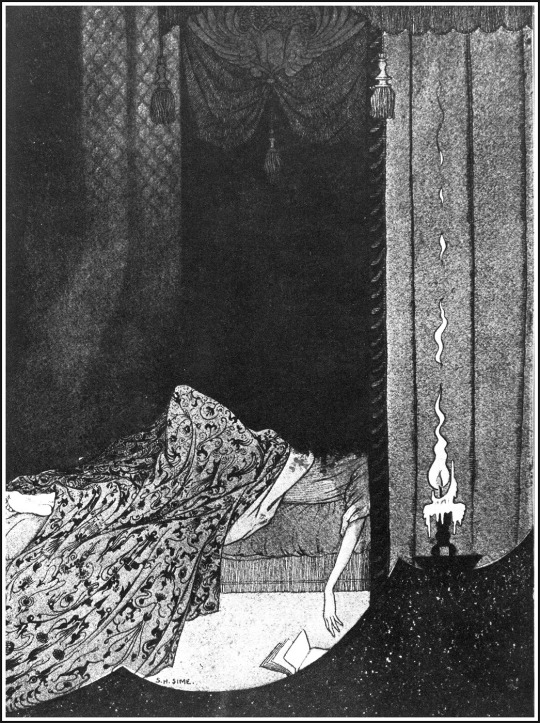
Sidney Sime aka Sidney H. Sime aka Sidney Herbert Sime aka S. H. Sime (English, 1867-1941, b. Manchester, England) - From The Book of Wonder by Lord Dunsany (English, 1878-1957), 1916, Drawings
1 note
·
View note
Photo
hace 2 horas: 14.Me gusta Mexico and South Korea fans party together after eliminating Germany - B A 2-0 win for South Korea over Germany handed Mexico a place in the next round of the World Cup and the Mexican supporters showed their gratitude. Foto via @vOy4ge < Desliza para comenzar w Patrick Infurna @pinfurna_ A SOUTH KOREAN MAN IS BEING PARADED AROUND THE SQUARE ON PEOPLES SHOULDERS WHAT THE HELLIS GOING ON ONLY THE WORLD CUP COULD DO THIS Q 1983 \ o Mic acy f- Carlos SanAvi | @CarlosSanAvi En respuesta a @SiavoushF y a @narduchita They are chanting "Corea, hermano, ya eres mexicano" that in english goes "Korea, brother, you're now Mexican" t) 2032 @REEEE coo gos > _ Simes @ "Thats te Korman consut general to Mexico Byoung Jn Han, celebrating with oratecl brim h 0 ol ne Mn GS * I In honor of Korea, I had to put this Korean man on my shoulders to celebrate 19 t Chris Su @christepher Meanwhile in Russia... Every #mexico fan is thanking every Korean in sight. #GERKOR #SWEMEX @TheWorldGame - J s
I am an image transcribing bot which uses Tesseract OCR to translate images to text. I'm far from perfect but I try my best! I l̨ove̡ you. (ʘ‿ʘ) | PayPal | Patreon








This is Mexico
17K notes
·
View notes



